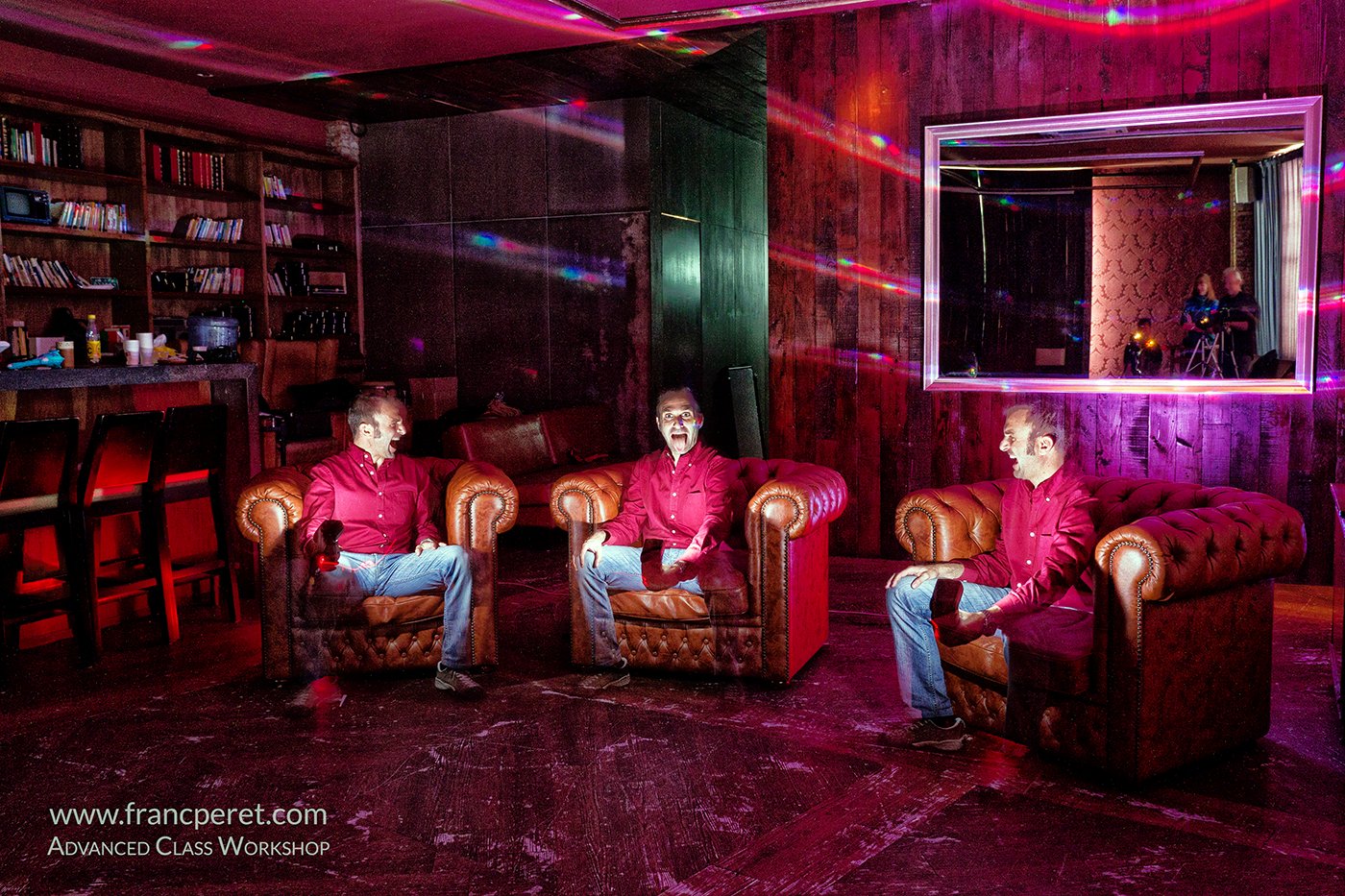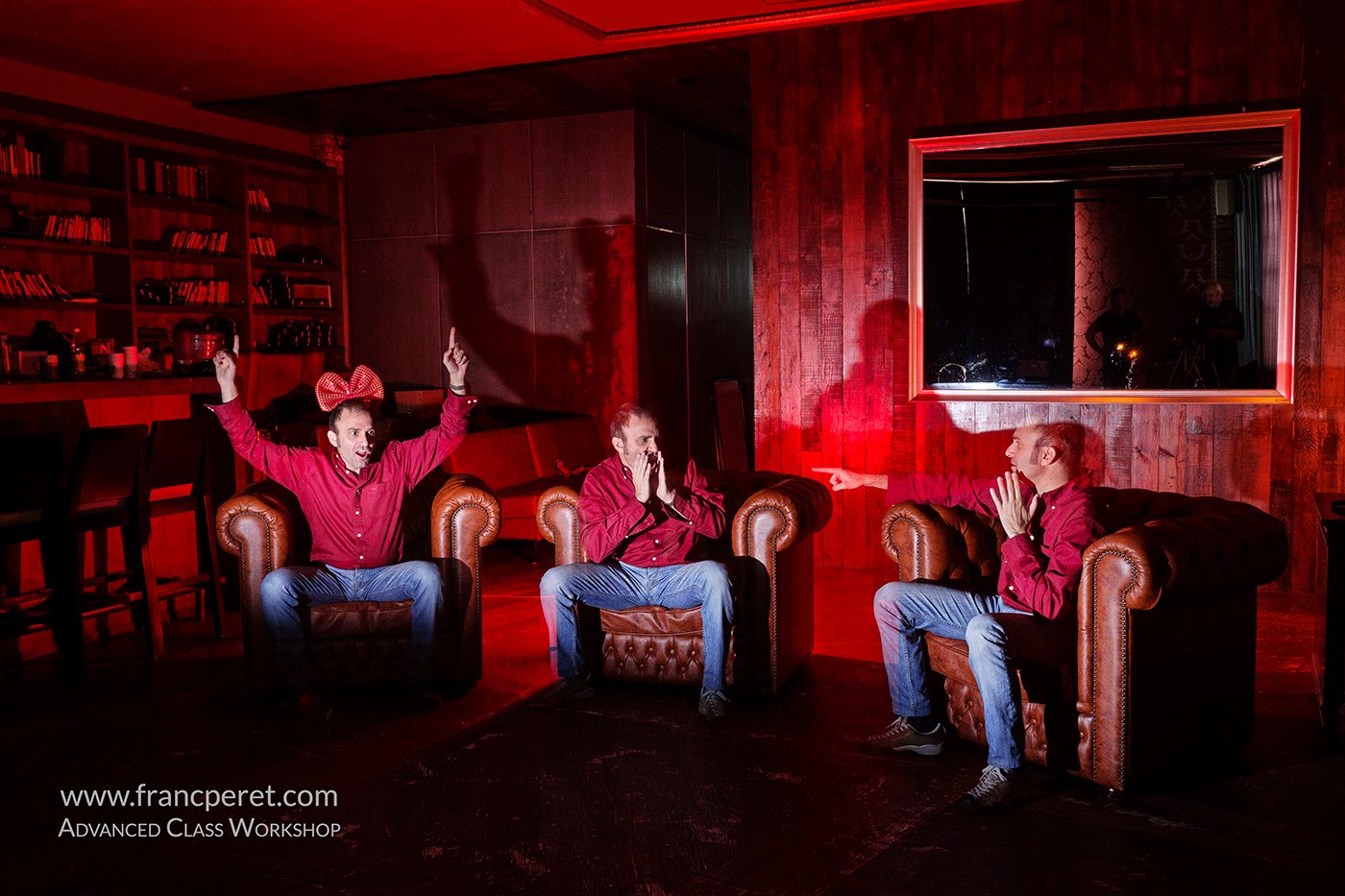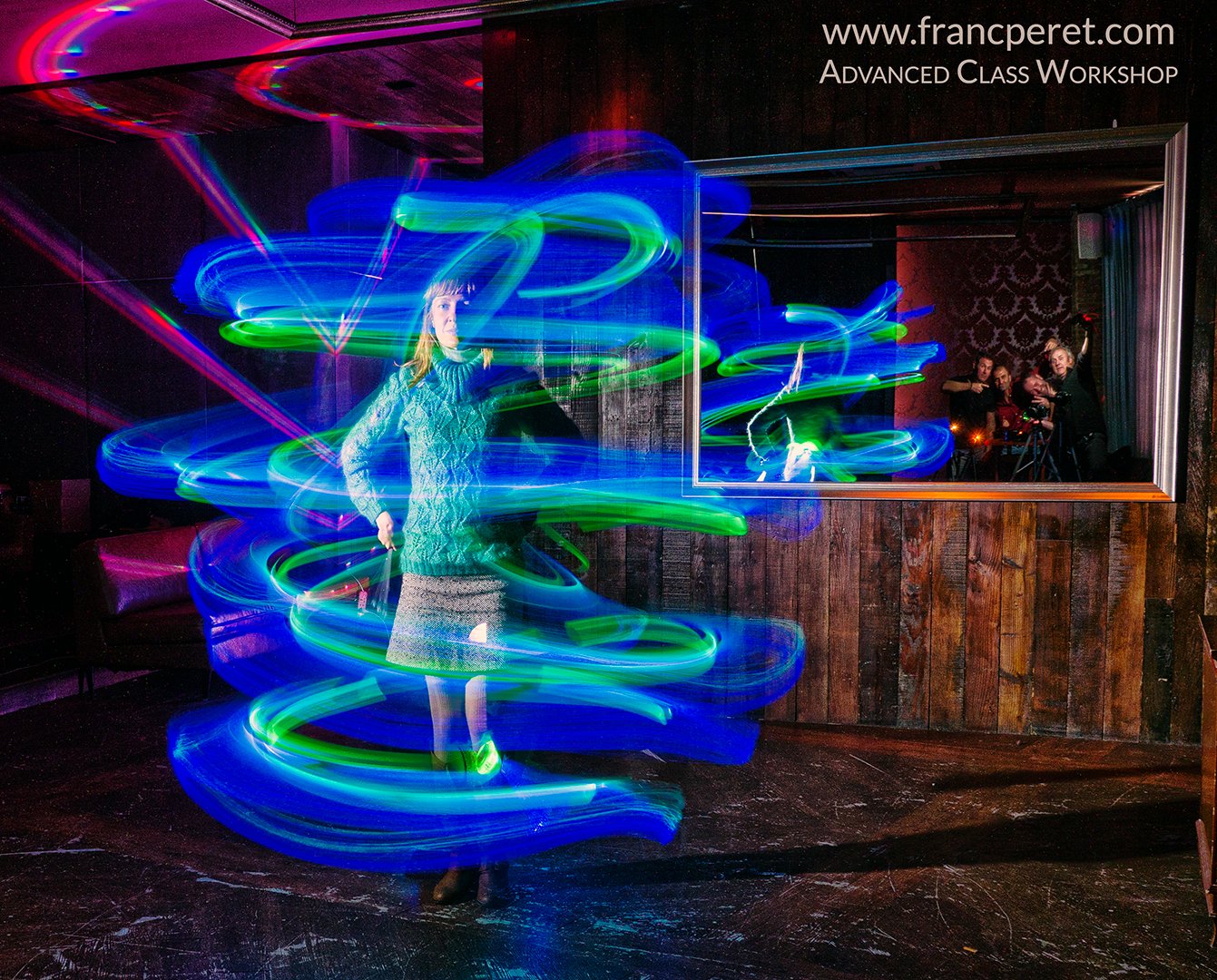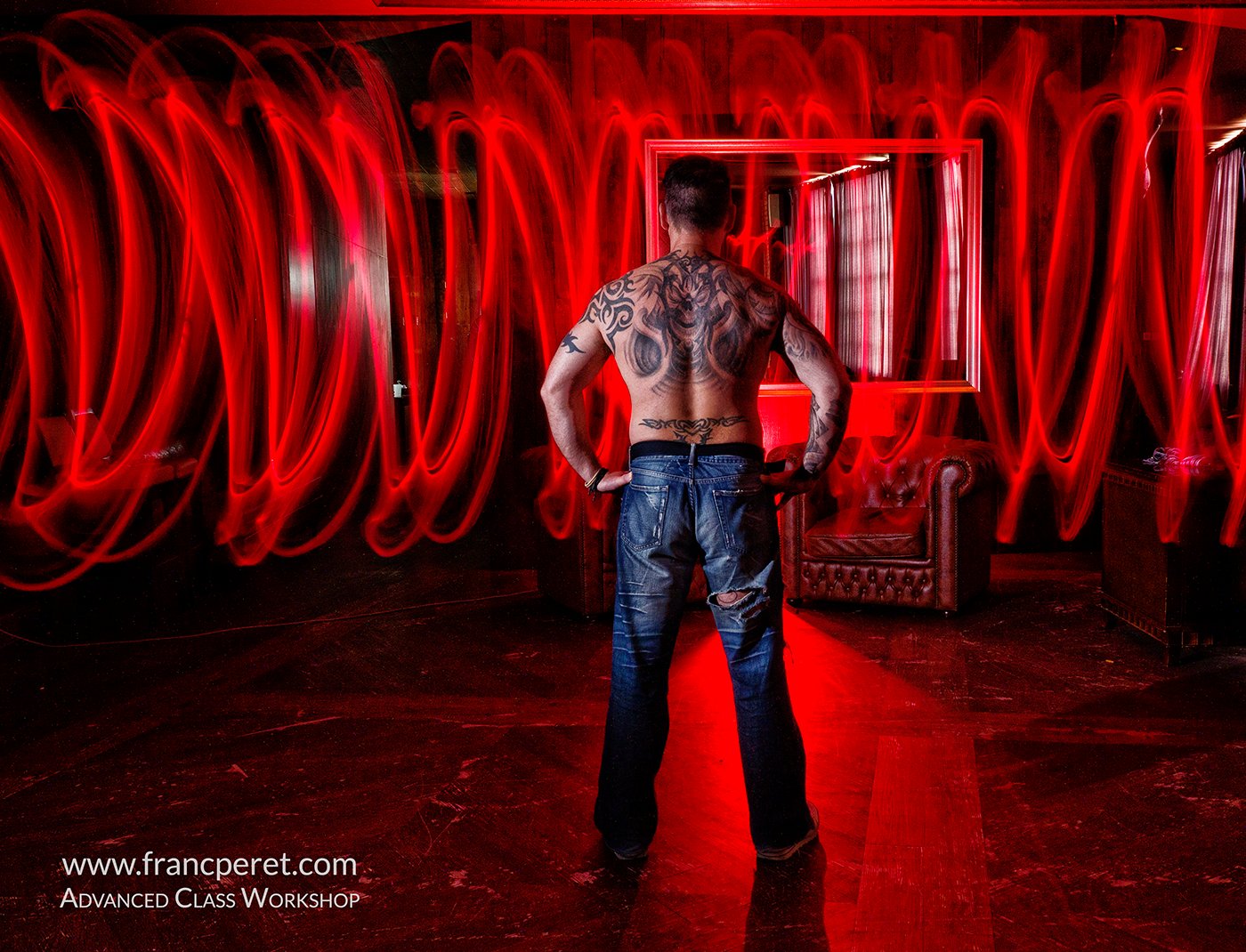
Painting With Light
Here are some sample of works done with my students during the Advanced Photography Workshop I am organizing in Shanghai. This time, Painting with light was the main topic
By Franc Peret
Franc’s Advanced Photography Course is designed for student to discover how to use their camera at the extreme: long pause, high speed shot, special effects and other things like this.
Painting with light is one of the most interesting workshop as your camera can record things you cannot see with your eyes and brain.
Trick is simple and affordable as you just need a camera, an average lens (as you work with regular aperture f5.6 – f8), a tripod (a chair or a table work perfectly too), a long exposure, some cheap flash, a partner, some torch or lights, a dark room and your imagination.
This is a more advanced step in photography as the camera becomes completely secondary to the process.
As soon as you set up well the camera with the right setting, you don’t think about it anymore and your focus you mind and imagination on the choreography you are going to organize in front of the lens.

For triple exposure of the same person, we used 2 different techniques. Here Eugenio is holding a speed-light (narrow zoom position) he will flash 3 times.
It is a great exercise of anticipation, as with experience, you are able to imagine exactly what is going to happen and how it will look like.

For triple exposure of the same person, we used 2 different techniques. Here Eugenio is receiving the light form an external speed-light (narrow zoom position) that will be flashed 3 times, each time in a different direction.
Most of the time, I am still having good surprises and this make the overall process always interesting as you are challenging both your imagination and your technical ability to make it happen.
This type of shooting session helps a lot my student to detach their attention to the camera and to the real life, to get more involved into the pure origin of photography which is “Painting with light”!

The idea of having the huge mirror in the background was to get some interesting reflection of the surrounding light, but we finally use it as a signature by flashing ourselves in the reflection.
And I am sure this workshop is useful to really understand what “exposure” means.
Franc Teacher: Franc Peret
Students on that session: Eugenio, Liam, Alexandra, Ray and Regino
Special guest: China Mei.
TECHNICAL CONSIDERATION
On a technical point of view, I always take benefit of my classes to test my newest cameras to see if they can answer to any type of my professional commitment.
All those pictures had been shot during my teaching session with Panasonic GH4 and 12-35 mm f2.8 lens set at f5.6 or f8 depending light work. Manual focus. Manual Exposure. ISO200 (Which is the base ISO on this camera).
Hot spots
Despite the base ISO, I noticed lots of hot pixels and color noise. I usually don’t have those parasites with my other camera (Nikon D800) when doing long pose (10 to 15 seconds).
Monitoring
Second problem I met with the GH4 is the lack of accuracy of the LCD screen. Image looks perfectly exposed on the screen, but histogram is telling the truth and I discovered that image could be under exposed 2 stops without having this result on my screen.
It seems that despite my screen luminosity NOT being set to auto, the GH4 is still compensating to render an acceptable image on screen, even the picture taken is truly underexposed.
Ergonomic
Out of those 2 points the GH4 is a joy to use with its fully articulated screen and its manual focus assistance features. Raw file are easy to work with, but exposure compensation often create noise in shadow area.
Franc Peret is teaching Essential Photography Classes, Advanced Photography Workshop and Film Making Classes in Shanghai




